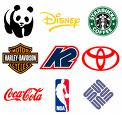
Perhaps the most intriguing assertion in an Ad Age article on What Marketers Can Learn from Obama is this one:
Mr. Obama’s packaging might discomfit older generations, who may think of themselves as immune to mass marketing. But it is “no problem” for millennials, whom Mr. Howe sees as averse to chaos and unpredictability (a trouble spot for both the Hillary Clinton and John McCain campaigns), and are “very comfortable with a very smooth brand that has minimal turmoil.”
I happen to agree. I agree both that Millennials are comfortable with mass brands and also that a certain corporate smoothness may be part of Obama’s appeal, or at least make his brand of ‘change’ more palatabale than one would expect of a Presidential candidate promising ‘reform.’ On the first point, Millennials are comfortable with mass brands, I can offer evidence. At the beginning of each term, I ask students to name some of their favorite brands. Out of a typical class of 40, 39 will name a mass brand like Apple, Nike, Budweiser, Gatorade, Starbucks, or Jamba Juice. Outlaw Consulting published a list of the top 15 brands among their panel of Gen Y trendsetters. The favorite 15 included Apple, Jet Blue, Whole Foods, H&M, Levi’s, Volkswagen, Vitamin Water, Ben & Jerry’s, In N Out Burger, Trader Joe’s, Target, Adidas, Converse and American Apparel and Red Stripe.
A contrary view is offered by Rob Walker, author of Buying In, in his ‘murketing’ blog post, “Gen Y and mass brands: Made for each other?” What makes this worth reading is the response it evoked from Millennials themselves, who reject the idea that their generation likes mass brands. Here’s a sample:
As a millennial myself, big brands don’t do it for me. We’re a generation that needs constant stimulation, which can be seen in the diverse trends and niches today. That also means lots of niche brands. We also like things to be fast and are always searching for the new. Big brands have a big image, and they usually keep that image constant. So we get bored. I know I do. And we’re also more discerning then previous brands. Some people don’t like the way big brands do their business, so they chose to support local or smaller businesses. Or they may question their marketing tactics, like do they really believe in my well-being or are they just trying to make money off of me? – Kaitlin
While I am sure Kaitlin, like my students, is sincere in her belief that she is bored and suspicious of mass brands, I only need to point out the number of brands they are wearing and carrying to make my point. There is something endearing about someone rejecting brands who is toting an iphone, wearing a Notre Dame hat, wearing Adidas shoes, and sipping a Starbucks latte. Millennials may relate to brands differently — they may not think of these brands as ‘their brands’ or make lifelong attachements. But it would be misguded to say they are not influenced by mass brand techniques, like the ‘smoothness’ and 360 consistency exhibited by Obama.

